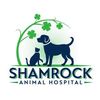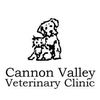Weitz Equine Veterinary Services is a full-service ambulatory equine practice. Our goal is to provide high-quality and compassionate veterinary care to all of our patients. Since then it has steadily grown due to the large number of caring horse owners in the community. The practice welcomed Dr. Melissa Johnson in 2007. Dr. Mary Huerter joined the practice the spring of 2018.
Thank you for taking the time to read about our veterinary practice and the services we offer. Please also check out our Facebook page for ongoing equine related information! Online Coggins (EIA Certificates) and Health Certificates (Certificate of Veterinary Inspection) are available from Global Vet Link and their sister site, MyVetLink.com. They are approved by USDA-APHIS-VS and they utilizing digital photos of each horse.
A chiropractic adjustment is a very specific, low force quick thrust along the plane of the joint that helps to get the joint moving again. Adjustments influence bones, muscles, tendons and ligaments.
Thank you for taking the time to read about our veterinary practice and the services we offer. Please also check out our Facebook page for ongoing equine related information! Online Coggins (EIA Certificates) and Health Certificates (Certificate of Veterinary Inspection) are available from Global Vet Link and their sister site, MyVetLink.com. They are approved by USDA-APHIS-VS and they utilizing digital photos of each horse.
A chiropractic adjustment is a very specific, low force quick thrust along the plane of the joint that helps to get the joint moving again. Adjustments influence bones, muscles, tendons and ligaments.
Services
You know what they say, "an ounce of prevention is worth a pound of cure!"
We are committed to preventing disease and common equine health problems.
Seeing your veterinarian each spring for vaccinations, coggins tests, and an overall assessment of health, is the best thing you can do to help prevent illness in your horse.
We recommend that a horse's teeth be checked at least once per year for any problems that could interfere with eating, comfort, or performance.
From young to old, we provide full dental care for all equine life stages.
We are committed to preventing disease and common equine health problems.
Seeing your veterinarian each spring for vaccinations, coggins tests, and an overall assessment of health, is the best thing you can do to help prevent illness in your horse.
We recommend that a horse's teeth be checked at least once per year for any problems that could interfere with eating, comfort, or performance.
From young to old, we provide full dental care for all equine life stages.
If this is an emergency, please call us at (507) 301-3400.
You will receive confirmation from our staff within 48 hours of your appointment time and date.
This week, Dr. Mary, Dr, Eva and Dr. Melissa working together with the help of another veterinarian (who also happened to own the equine patient), learned to perform a standing enucleation (eye removal).
Cooperating and coordinating to learn these new procedures is vital to our success as veterinarians.
The other night, I spent an hour or so weeding.
You will receive confirmation from our staff within 48 hours of your appointment time and date.
This week, Dr. Mary, Dr, Eva and Dr. Melissa working together with the help of another veterinarian (who also happened to own the equine patient), learned to perform a standing enucleation (eye removal).
Cooperating and coordinating to learn these new procedures is vital to our success as veterinarians.
The other night, I spent an hour or so weeding.
Because the horse was turned out, no one had witnessed the injury.
But, as we all know, if there is something for a horse to cut themselves on, they WILL find it.
And this foal certainly did a great job.
To top things off, these photos were taken AFTER 15-20 minutes had been spent cleaning the wound which was thoroughly covered with hay and dirt.
Because the laceration was dirty, it was thoroughly debrided (contaminated tissue was cut off).
This made suturing the laceration difficult, as the edges were under A LOT of tension.
But, as we all know, if there is something for a horse to cut themselves on, they WILL find it.
And this foal certainly did a great job.
To top things off, these photos were taken AFTER 15-20 minutes had been spent cleaning the wound which was thoroughly covered with hay and dirt.
Because the laceration was dirty, it was thoroughly debrided (contaminated tissue was cut off).
This made suturing the laceration difficult, as the edges were under A LOT of tension.
Equine parasite resistance is on the rise.
Small strongyle resistance to the benzimidazole (Panacur, Anthelcide) and pyrantel pamoate (Strongid) dewormer classes and ascarid resistance to macrocyclic lactone (Ivermectin, Quest) dewormer class have been reported in the United States.
Additionally, there are no new deworming drugs currently in development.
Keeping the effectiveness of the drugs we have for as long as possible is therefore very important.
So we want to make sure we use the right deworming drug at the right time.
Small strongyle resistance to the benzimidazole (Panacur, Anthelcide) and pyrantel pamoate (Strongid) dewormer classes and ascarid resistance to macrocyclic lactone (Ivermectin, Quest) dewormer class have been reported in the United States.
Additionally, there are no new deworming drugs currently in development.
Keeping the effectiveness of the drugs we have for as long as possible is therefore very important.
So we want to make sure we use the right deworming drug at the right time.
West Nile/Eastern/Western Encephalitis (WNEW): These diseases are transmitted by mosquitoes.
Therefore, where there are mosquitoes, there is risk for these diseases.
All 3 diseases cause neurological signs and can be fatal.
For this reason, an annual vaccination is a must!
Tetanus: Tetanus is caused by a bacteria found everywhere in the environment.
Horses are extremely sensitive to the bacteria and can develop very serious disease with only a small exposure through a cut or wound.
Again, the yearly vaccination is VERY IMPORTANT.
Therefore, where there are mosquitoes, there is risk for these diseases.
All 3 diseases cause neurological signs and can be fatal.
For this reason, an annual vaccination is a must!
Tetanus: Tetanus is caused by a bacteria found everywhere in the environment.
Horses are extremely sensitive to the bacteria and can develop very serious disease with only a small exposure through a cut or wound.
Again, the yearly vaccination is VERY IMPORTANT.
Reviews

Be the first to review Weitz Equine Veterinary.
Write a Review


